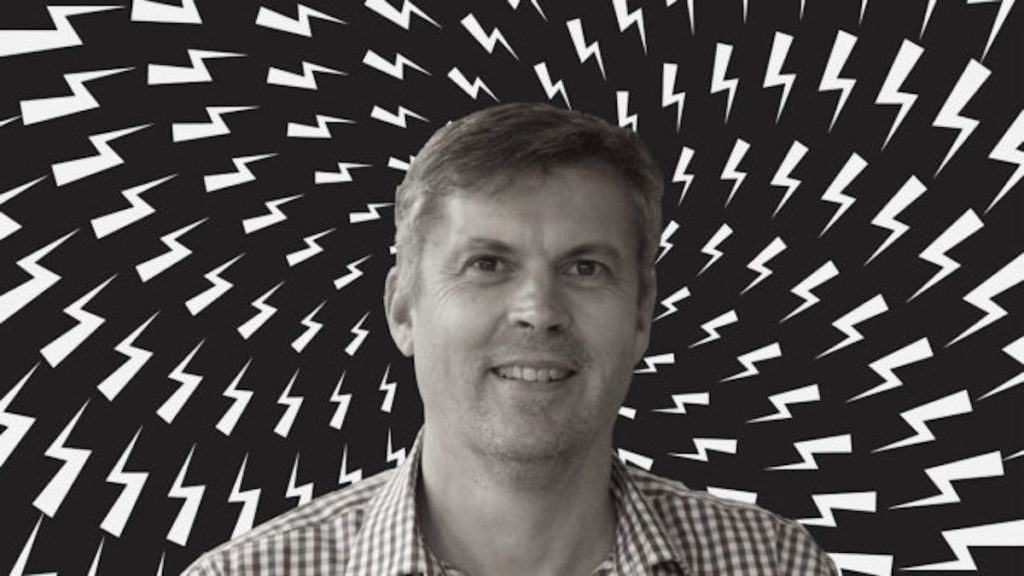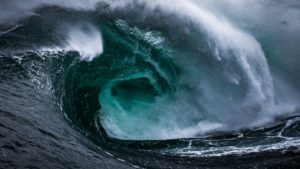Dr Boreham’s Crucible: Resmed’s jumped out of bed in 2023

Tim Boreham is one of Australia's best-known small-cap share analysts and business journalists.
Like its patients, investors in Resmed (ASX:RMD) are sleeping soundly after the global sleep disorders specialist posted a set of rousing December quarter numbers that largely beat the market’s expectations.
The San Diego, California-based outfit – which we will continue proudly to call Australian – has also just signed off on its bolt-on acquisition of German business Medifox Dan, its first purchase of an internet ‘cloud’ based monitoring provider outside the US.
Resmed chief Mick Farrell cites “incredible demand” – not just for the conventional flow generators but newer lines such as cloud-connected devices and sleep diagnostic tools.
But corporate lore goes that nothing goes right all the time. Supply chain problems persist – especially for electronic components – which means Resmed has not been able to capitalise fully on a huge recall from rival sleep apnoea device maker Philips Respironics.
The good news is that these post-pandemic supply problems are abating and the ‘business as usual’ shingle is out.
“We are confident of meeting all customer demand by the end of 2023,” Mr Farrell says.
About Resmed
As everyone knowzzz by now, Resmed is a leader in obstructive sleep apnoea (snoring) and other sleep-related respiratory disorders.
Its core product remains the continuous positive air pressure (CPAP) machine, a portable pump that delivers a steady flow of air to the somnolent user via a tightly-fitted mask. The air pressure acts as a ‘pneumatic splint’ to keep the airways open.
The CPAP devices are the hardware, while the masks and tubes comprise the disposable components.
In recent years, Resmed has expanded into products that diagnose sleep apnoea, both in the clinic and at home. These include internet-connected devices for remote monitoring.
Resmed has also made less successful – or at least lower profile – forays into dental devices (sleep apnoea mouthguards) and portable oxygen concentrators.
Resmed sells in 140 countries – either directly or via distributors – but the US is by far its most important market.
Sleepers, awake!
In the days of yore, the standard-of-care treatment was a tracheotomy – a hole cut surgically into the windpipe.
Not surprisingly, this method was considered to be sub-optimal.
A bright spark then devised uvulo-palato-pharyngo-plasty, which involved cutting out excess tissue in the windpipe to streamline the conduit.
Not surprisingly, this method was considered to be sub-optimal as well.
Enter Sydney sleep expert Dr Colin Sullivan, who in 1980 converted a vacuum cleaner to deal with the deafening snores emitted by dogs with pushed-in faces such as pugs, bulldogs and boxers.
During the 1980s, the tech was commercialised in the US by the Baxter Centre for Medical Research and other parties including the Asthma Foundation and the University of Toronto.
Founded by Dr Peter Farrell, Resmed acquired the right to the technology in 1989. Resmed listed on the Nasdaq in 1995 and the ASX in late 1999 – and the rest is hizzztory.
Michael Farrell took over from his father Peter as CEO in 2013, with Farrell senior remaining chair. But in a “streamlining” measure unveiled last week the company said Farrell junior would also take over as chair and hold both roles, while Peter would take on an “emeritus chair” role.
During the pandemic Resmed turned over its factories to make ventilators for Covid wards. This sideline generated about $US230 million of revenue over two years, but then again, the pandemic kept clients away from sleep clinics in droves.
Growing via acquisition
After not doing much on the acquisitions front for years, Resmed has expanded aggressively into “connected care”: out-of-hospital software that enables the patient to use the devices at home, with data streamed to the clinician.
In October last year, Resmed acquired German software-as-a-service company Medifox Dan – pronounced ‘darn’ – for $US997 million (funded by debt). Medifox Dan is a leader in the nursing home and home health sectors.
In April 2016, Resmed acquired out-of-hospital software provider Brightree for $US800 million and then snaffled up US aged-care and home-care players Healthcarefirst and Matrixcare in late 2018, for $US126 million and $US750 million respectively.
In December 2018, Resmed bought Propeller Health, a Wisconsin-based asthma and pulmonary ‘connected care’ specialist, for $US225 million ($A320 million).
In January 2020, Resmed bought Snapworx, a private software company supporting the re-ordering of medical supplies. In October 2021, it acquired Ectosense, purveyors of the Nightowl cloud-connected home sleep test.
Device line-up
Despite Resmed’s acquisition-fuelled diversification, its playbook is about improving its core products so they are easier and more comfortable to use (the compliance rate with CPAP is notoriously low).
Key products are the Air Sense CPAP pump range and the Airfit and Air Touch masks. The diagnostic range includes Apnea Link Air and Night Owl.
One example of a tweaked product is the Airfit N30i mask, which is designed with the air tube protruding from the top of the mask, rather than the face.
In Europe, the company launched Airview for high-risk ventilation patients. Apart from monitoring existing patients, the tool also enables early intervention at the first sign of problems.
A key reason for the 16 per cent boost in revenue for the quarter was a sizeable increase in production of so-called ‘card-to-cloud’ devices. This refers to Airsense 10 pumps which were re-engineered to circumvent computer chip shortages.
Management’s priority is to increase output of its Airsense 11 devices, which are state-of-the-art in terms of connectivity and usability.
Finances and performance
In the three months to December 31, 2022, Resmed chalked up revenue of $US1033.7 million, 16 per cent higher. Net income (we call it profit here) was $US224.4 million, 13 per cent to the good.
Resmed’s device revenues surged 20 per cent to a record $US542 million, while the masks and accessories sales rose 13 per cent to $US374 million.
Management highlighted an “extraordinary” 18 per cent boost in software-as-a-service (SAAS) revenue, to $US116.8 million. “We see this as the start of the digital health marathon and I can tell you we love the race,” Mr Farrell said.
Overall, Resmed gleaned 52 per cent of its revenue from devices and 36 per cent from masks, with the digital/SAAS side chipping in steady 11 per cent.
The Americas (read: the US) contributed 72 per cent of revenue, compared with 65 per cent a year previously.
Post the Medifox Dan purchase, Resmed has cash on hand of $US250 million and undrawn debt of $US390 million. In short, the company is well placed for more tuck-in acquisitions.
The company expended $US70 million on research and development, up 12 per cent and expects to earmark seven to eight per cent of revenue for such exploratory pursuits in the full year.
Resmed shares have held their ground over the last year, trading between $27.37 (late May 2022) and $35.70 (October 2022).
The shares hit a record $40 in September 2021.
Five years ago, the stock was worth just over $12.
stock share price today
 
A Philips fillip?
In June 2021, Philips was forced to withdraw one million of its ventilators from the market because of a problem with sound abatement foam.
It was found the disintegrating material created toxic gases.
The trouble is, regulators are less than happy with the replacement foam, which apparently can break off and clog the airpath.
Since then, the number of recalled devices has swollen to 5.5 million and Philips is also mired in a class action from aggrieved users.
The great guessing game within the industry is when Philips will return to market and how it will impact Resmed.
But Mr Farrell opines that investors and analysts have been fretting far more than Resmed management, and that Philips’ return to market would “not be a big perturbation”.
Why? When Philips does come back to market, its devices will create demand for Resmed’s masks and peripherals.
Judging from Philips’ quarterly report musings this week, there’s no sign of an imminent return to market. When it does re-enter, the world’s second biggest CPAP player will be competing more with the tier-two players that have bobbed up to fill demand.
“I look forward to them coming back,” Mr Farrell declares. “We have the playbook ready for all scenarios.”
Broker Wilsons goes a step further and assumes the Philips/Respironics business is “irreparably damaged”.
The taxman calleth
Resmed’s annual report – filed to US authorities – reveals a $US238 million settlement to the Australian Taxation Officer, pertaining to a long-running transfer pricing dispute.
Transfer pricing involves the shift of revenue and profits to lower taxing regimes. First announced in October 2021, the settlement stems from the activities of the ATO’s Tax Avoidance Taskforce which also winkled settlements from BHP, Apple, Chevron, Facebook, Google and Microsoft.
Resmed’s gross liability was $US381.7 million, including $US48.1 million in interest and penalties.
Allowing for $US143 million of credits and deductions, the company wrote out a cheque for $US284.8 million. But such are the quirks of accounting the payment did not leave a hole in the latest financials.
Dr Boreham’s diagnosis:
While the Resmed story is well known – as is CPAP treatment generally – Michael Farrell maintains the sleep and respiratory market is “globally under-penetrated.”
As Mr Farrell puts it, close to a billion people “suffocate” every night with mild to severe sleep apnoea, with there are a further 380 million chronic obstructive pulmonary disease (COPD) patients and 330 million asthma patients.
“During calendar 2022, we improved over 149 million lives and we are well on our way to helping 250 million … by 2025,” Mr Farrell says.
To be specific, these envisaged 250 million clients are not all CPAP users, but may avail of a monitoring application or a mask for use with another company’s pump.
Nonetheless, this implies Resmed will continue to increase volume at a compound annual rate of 17 to 18 per cent – a decent clip for a mature company.
Given reimbursement remains crucial, we suspect Resmed always will be a US-oriented business.
In the meantime, the Medifox Dan purchase shows that management is not asleep at the wheel and has its eye on growth prospects elsewhere.
Disclosure: Dr Boreham is not a qualified medical practitioner but in his sleepless half-dreaming state can only hope that some sort of said qualification may fall out of his Weet Bix packet one morning
This column first appeared in Biotech Daily
The views, information, or opinions expressed in the interviews in this article are solely those of the interviewees and do not represent the views of Stockhead. Stockhead does not provide, endorse or otherwise assume responsibility for any financial product advice contained in this article.
Related Topics

UNLOCK INSIGHTS
Discover the untold stories of emerging ASX stocks.
Daily news and expert analysis, it's free to subscribe.
By proceeding, you confirm you understand that we handle personal information in accordance with our Privacy Policy.








